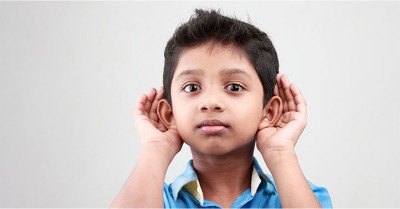Listening skills not only create the foundations for literacy and numeracy learning but set the stage for a wide range of interpersonal and self-regulation skills. The following article provides strategies on ways of promoting listening skills in early childhood learning contexts.
Use Play To Build Listening Skills
Young children respond more to play-based learning strategies rather than their teacher reeling out a long list of shoulds and shouldn’t. So use games like Traffic Lights, Chinese Whispers and Simon Says to nurture listening skills in young children. These games involve participants listening carefully to cues from others and then responding with suitable actions. For older children you can describe an object and have them draw on paper or play “What’s That Sound?” in which common objects are used to make a sound, banging a spoon, popping a balloon, shaking a peppermill and then children are asked to guess that it might be.
Include Different Types Of Auditory Stimuli
See how you can incorporate a wide variety of auditory cues and sounds in your lessons. For example liven up storytelling or reading sessions by varying the tone and pitch of your voice or the speed of your words for say, different characters or to indicate different settings. Include lots of songs, poems, clapping or other actions to sensitise children to rhythm and rhyme. All these measures will help refine their auditory senses and create the sensory foundation for listening skills.
Be An Active Listener
As always, modelling desirable behaviour yourself is one of the most effective ways to teach young children. So when they are speaking to you,
- Are listening actively by making eye contact.
- Use other non-verbal cues like nodding or vocalizations like “uh-huh” and “hmm-hmm” to let them know that they have your full attention.
- Reflect on what the child is saying to you – “You are missing your pet, right?” – and then respond with useful suggestions – “Shall we look at your pup’s pictures together” or compassionate insights –
“How do you think your pup will welcome you when you are back home?”
As you model active listening to your learners, they will be able to pick up the skills and see the value in being good listeners themselves.
Have Patience
Listening to young children is not just a matter of will. If a young learner does not seem to be able to follow your instructions, it is not always because he or she doesn’t want to. The physiological act of listening depends on developmental factors like sensory coordination and control besides the ability to filter out competing stimuli and delay gratification. And since not all children develop at the same pace, you may find some, more than others, unable to focus on your words. Usually by five or six years, though most kids can set aside distractions, they can still listen attentively only for five to ten minutes. Once you keep in mind all these factors, you will be able to help your learners better in the development of their listening skills.
Further Reading
Phrases To Use When Children Aren't Listening - The following provides helpful phrases to use when children don’t seem to listen.
Active Listening - The article provides information on What Active Listening Is, Active Listening Definition, Active Listening Skills Examples and more.
How To Get Children To Listen To You Throughout The Day - Here is a step-by-step guide on how to get a child to listen to your request.
EYLF Outcome 5 - Children Are Effective Communicators V2.0 - The following lists the sub-outcomes, examples of evidence when children achieve each sub-outcome and how educators can promote and help children to achieve EYLF Outcome 5 - Children Are Effective Communicators V2.0.







 Open ended questions cannot be responded to with one word answers such as yes or no. These types of questions enables a child to provide
Open ended questions cannot be responded to with one word answers such as yes or no. These types of questions enables a child to provide During your child’s preschool years, an important milestone begins to emerge. This is the development of pre-writing skills. Pre-writing skills are used to encourage, develop
During your child’s preschool years, an important milestone begins to emerge. This is the development of pre-writing skills. Pre-writing skills are used to encourage, develop Open ended materials enables children to play freely. They are objects that have no rules to follow, use or function. Raw materials that can be
Open ended materials enables children to play freely. They are objects that have no rules to follow, use or function. Raw materials that can be An Acknowledgment of the Country is a way of showing respect for the Traditional Owners and can be given by both non-Indigenous people and Aboriginal
An Acknowledgment of the Country is a way of showing respect for the Traditional Owners and can be given by both non-Indigenous people and Aboriginal Language plays an important role in a child’s development. It enables a child to communicate effectively with their family, learn at school, socialize with friends,
Language plays an important role in a child’s development. It enables a child to communicate effectively with their family, learn at school, socialize with friends, Like adults, children have to deal with their own stress in life. Moving house, starting a new school, preparing for a new sibling - these are
Like adults, children have to deal with their own stress in life. Moving house, starting a new school, preparing for a new sibling - these are Playdough is such a versatile material. It provides numerous benefits to children as they manipulate it, it is safe and soothing and provides children with
Playdough is such a versatile material. It provides numerous benefits to children as they manipulate it, it is safe and soothing and provides children with Teaching children about sustainability enables them to appreciate and respect the natural environment. Early childhood services can provide meaningful hand on learning experiences in order
Teaching children about sustainability enables them to appreciate and respect the natural environment. Early childhood services can provide meaningful hand on learning experiences in order Recycling is an important concept that teaches children to care for the environment. It encourages children to be responsible and show a growing appreciating for
Recycling is an important concept that teaches children to care for the environment. It encourages children to be responsible and show a growing appreciating for When children apply paint to paper, glue things together, or pound a lump of clay, they experiment with colour, shape design and texture.
When children apply paint to paper, glue things together, or pound a lump of clay, they experiment with colour, shape design and texture.



